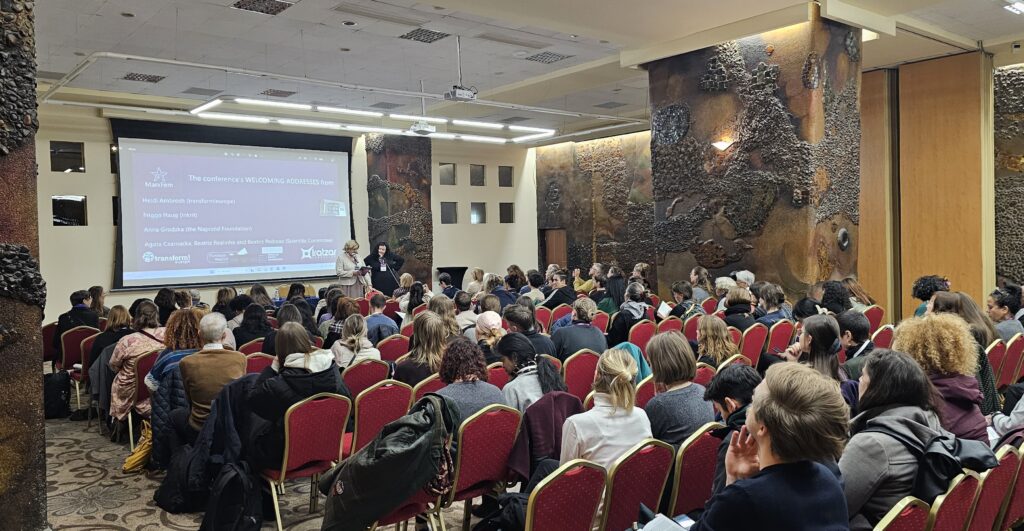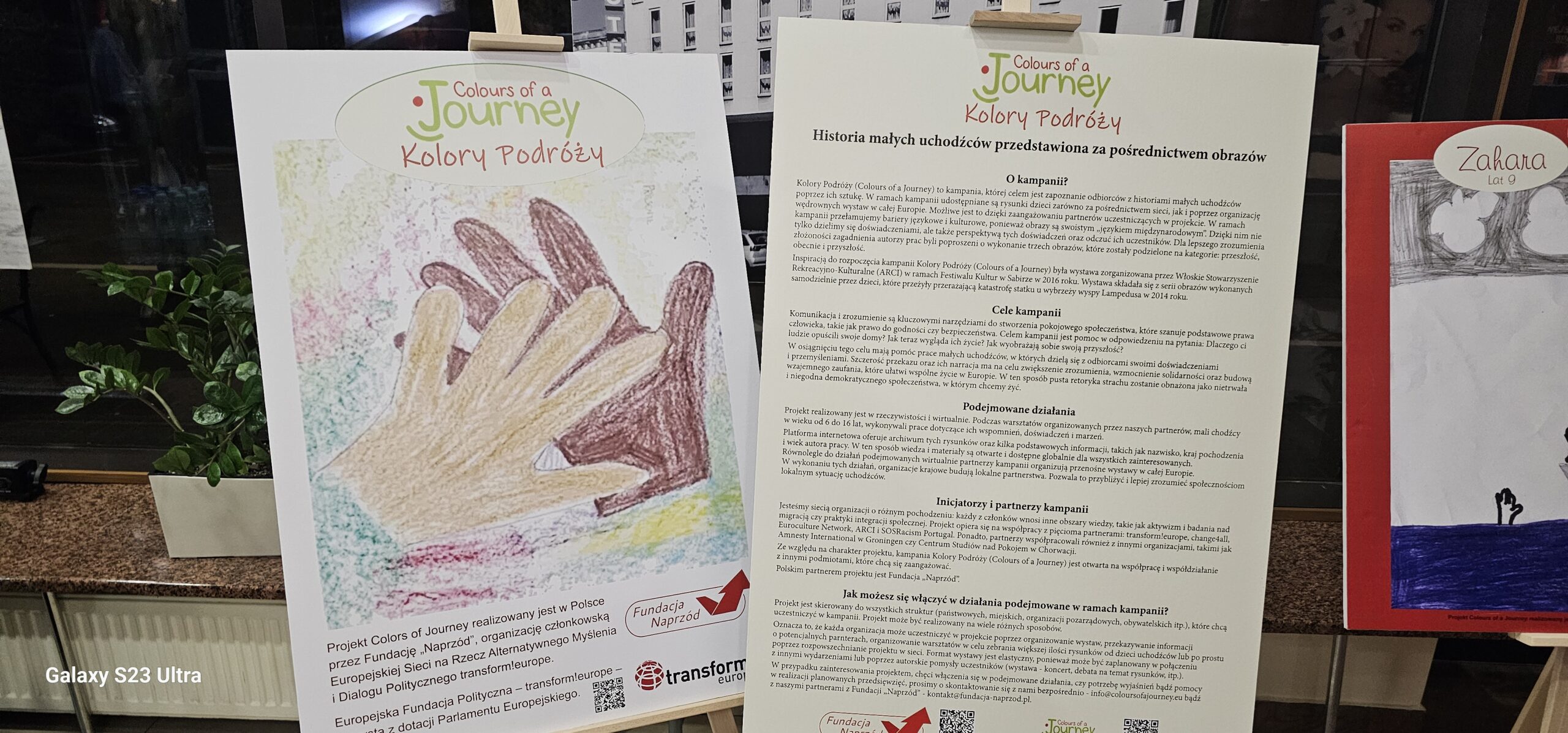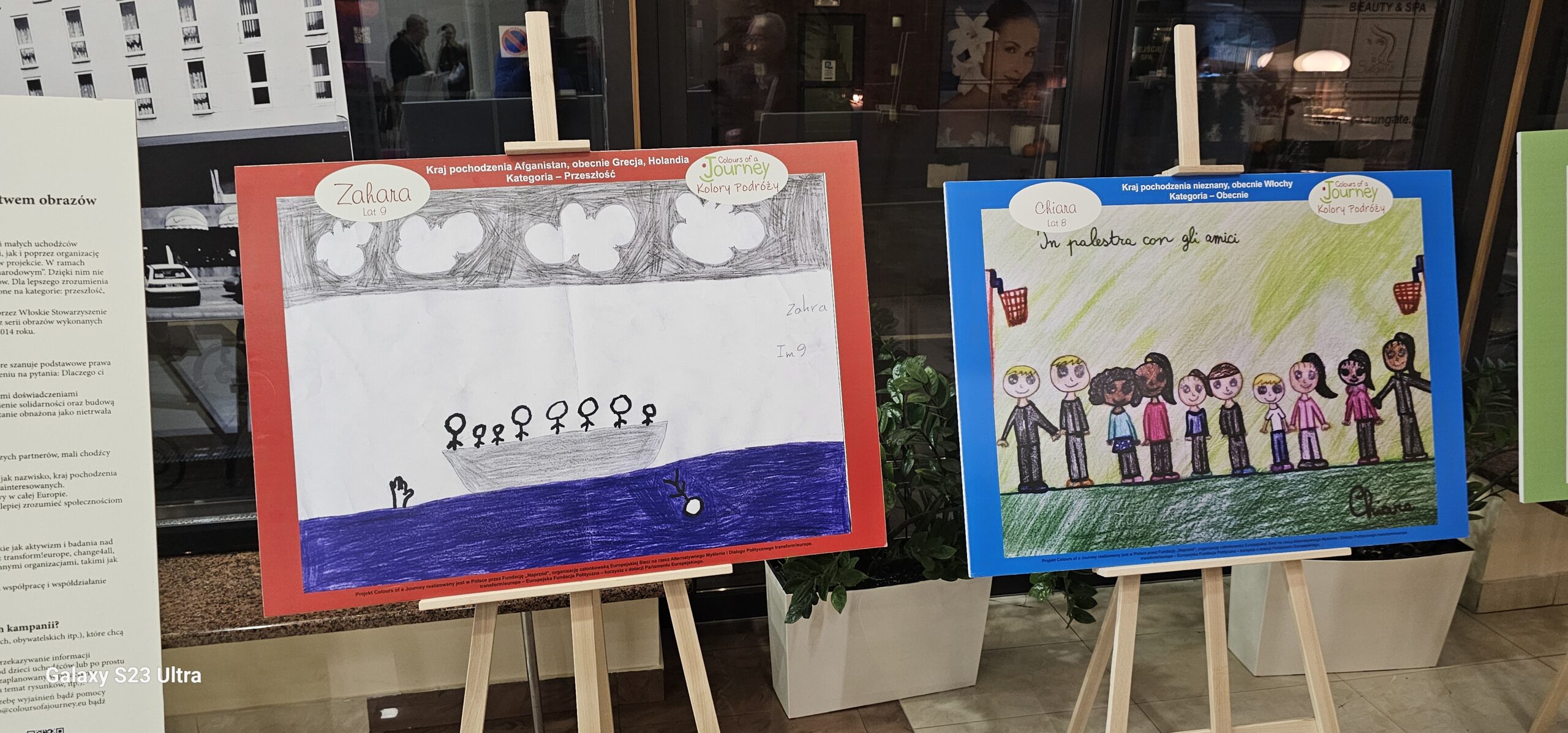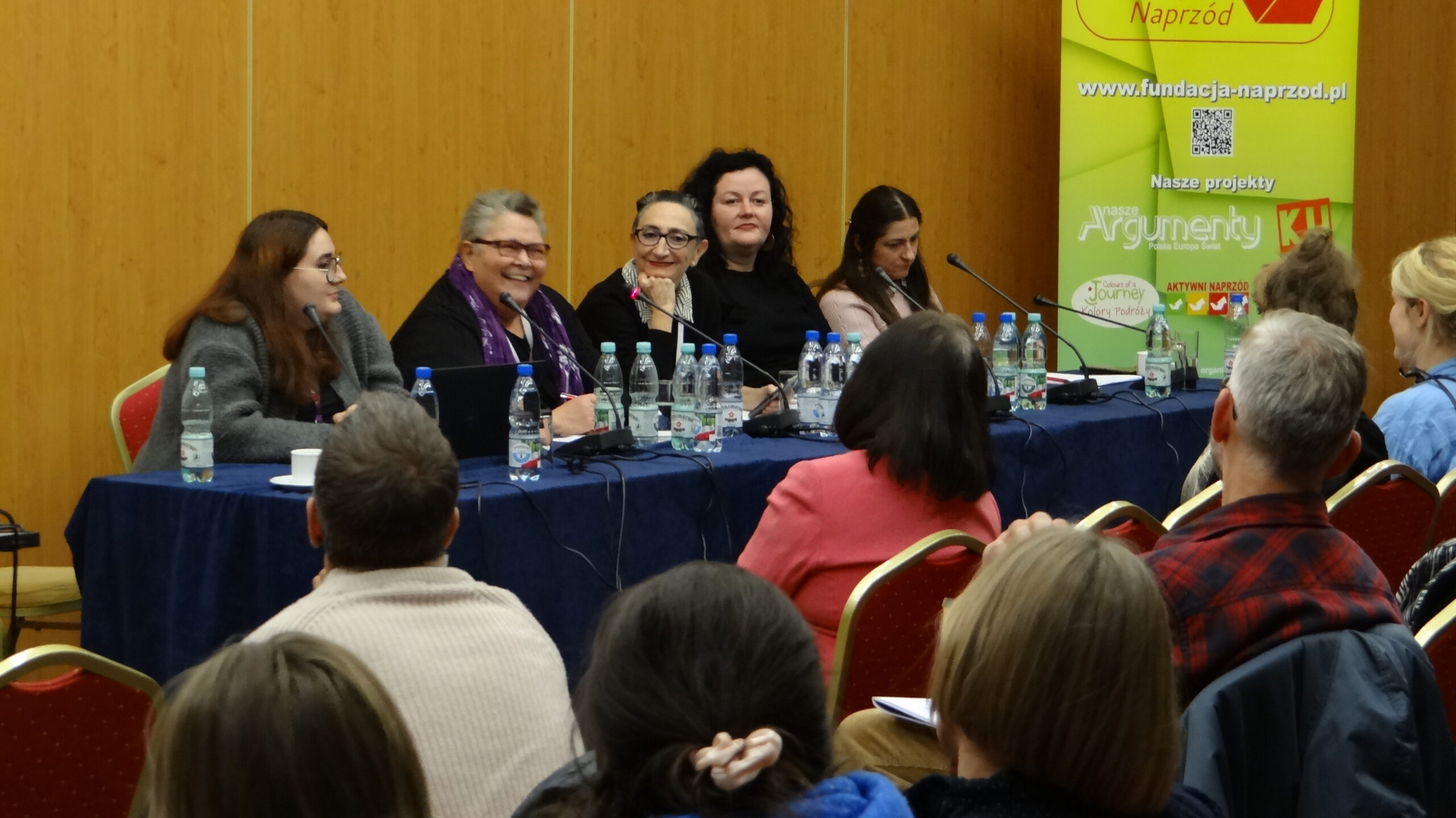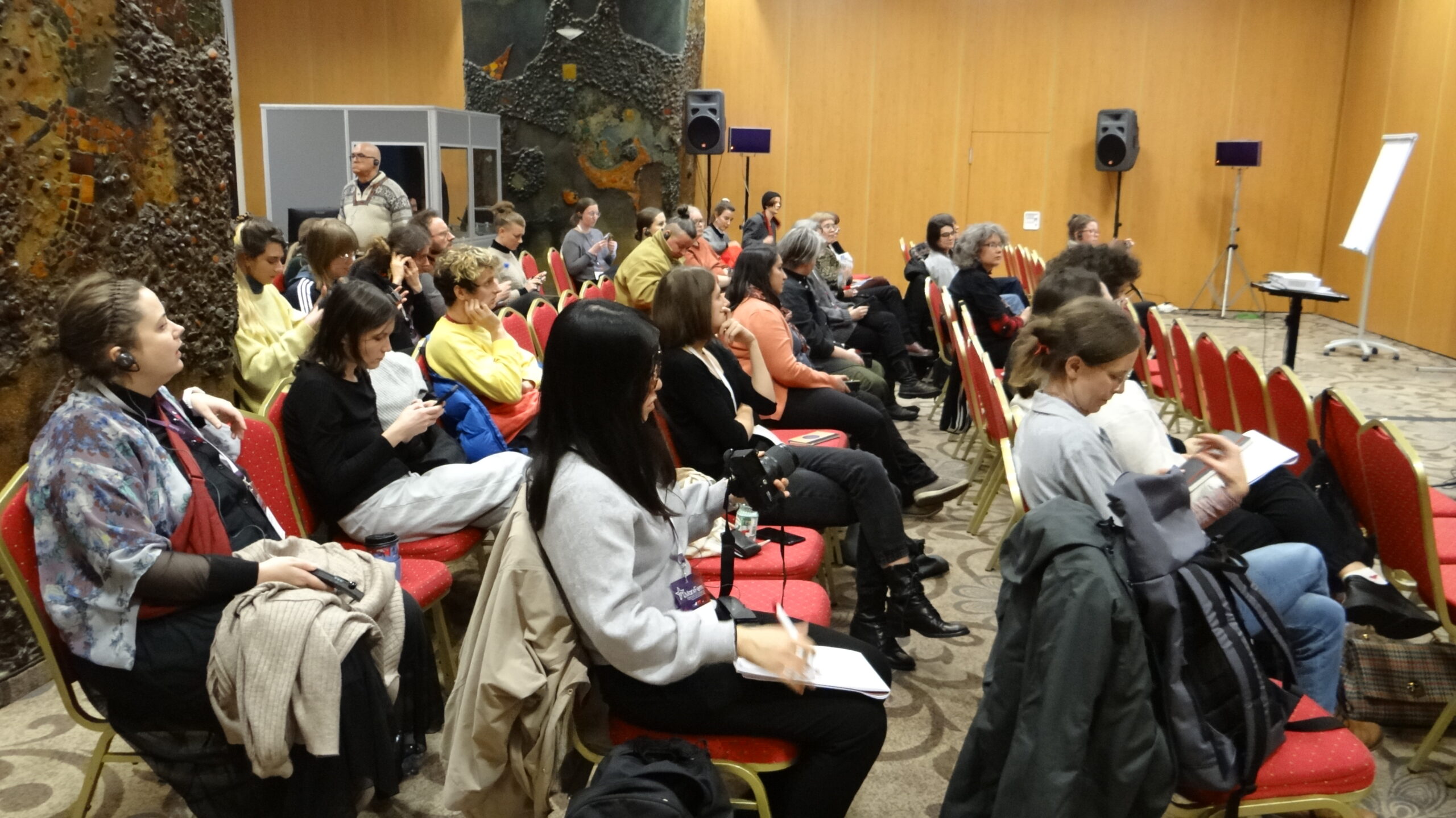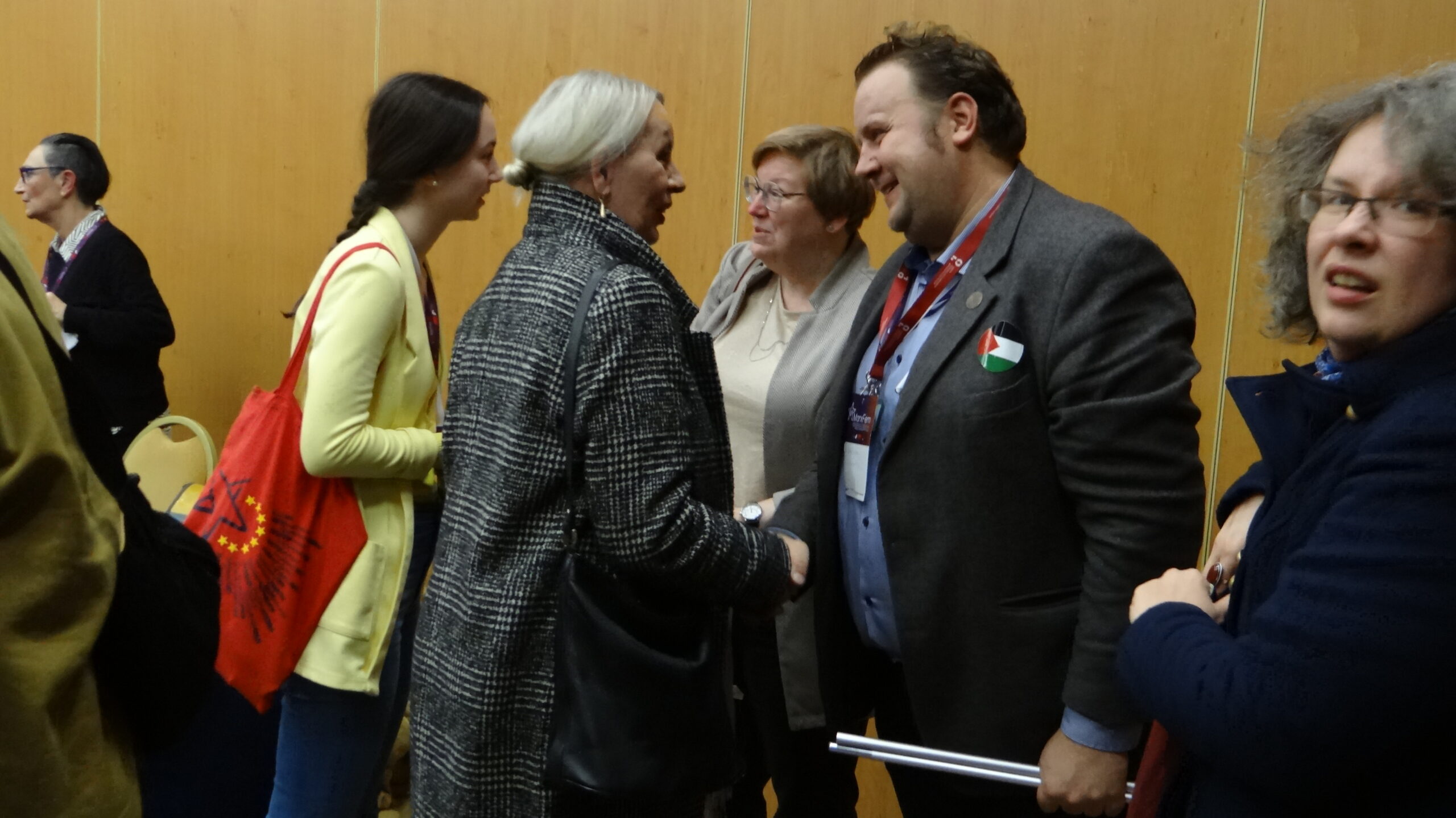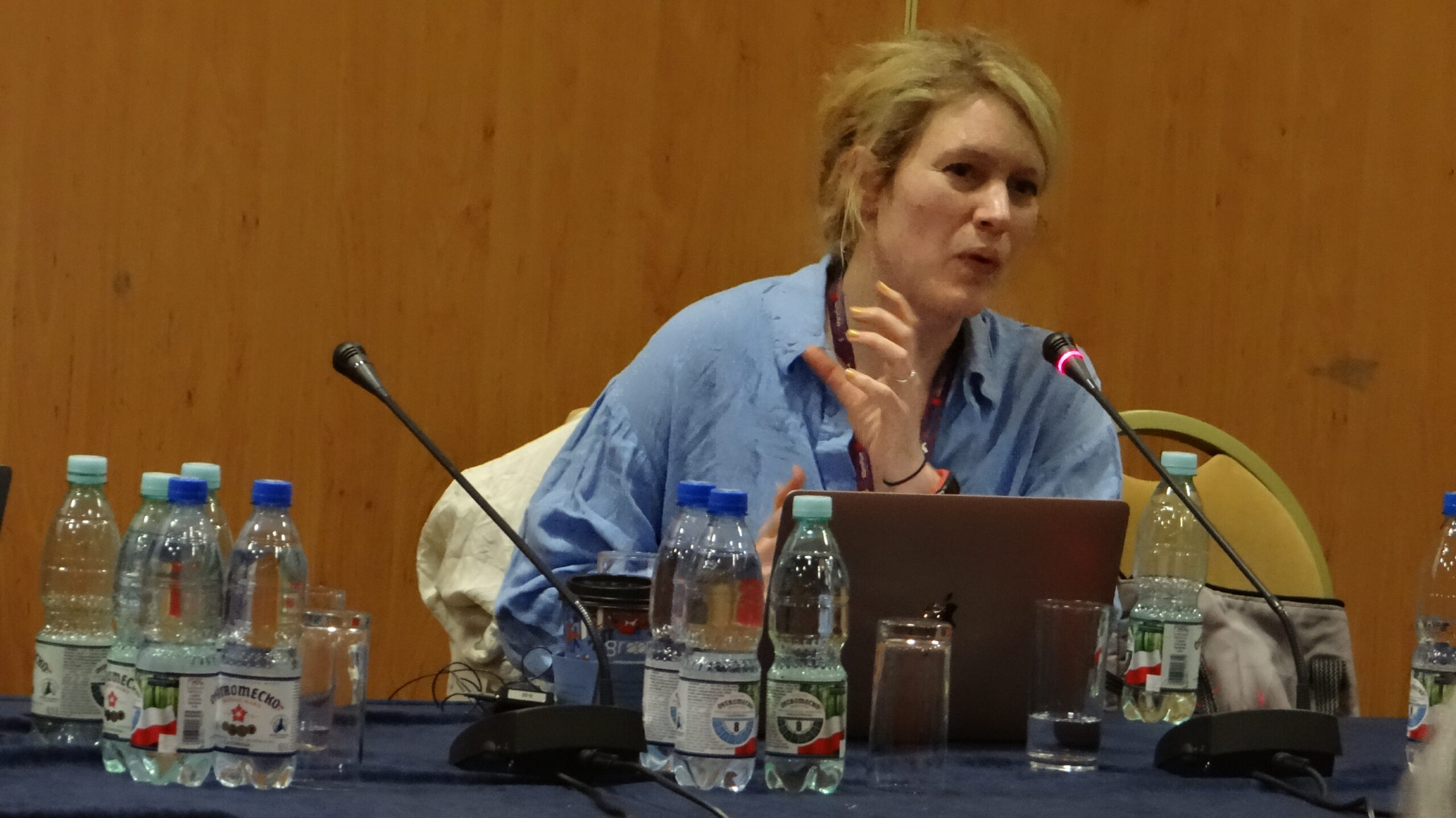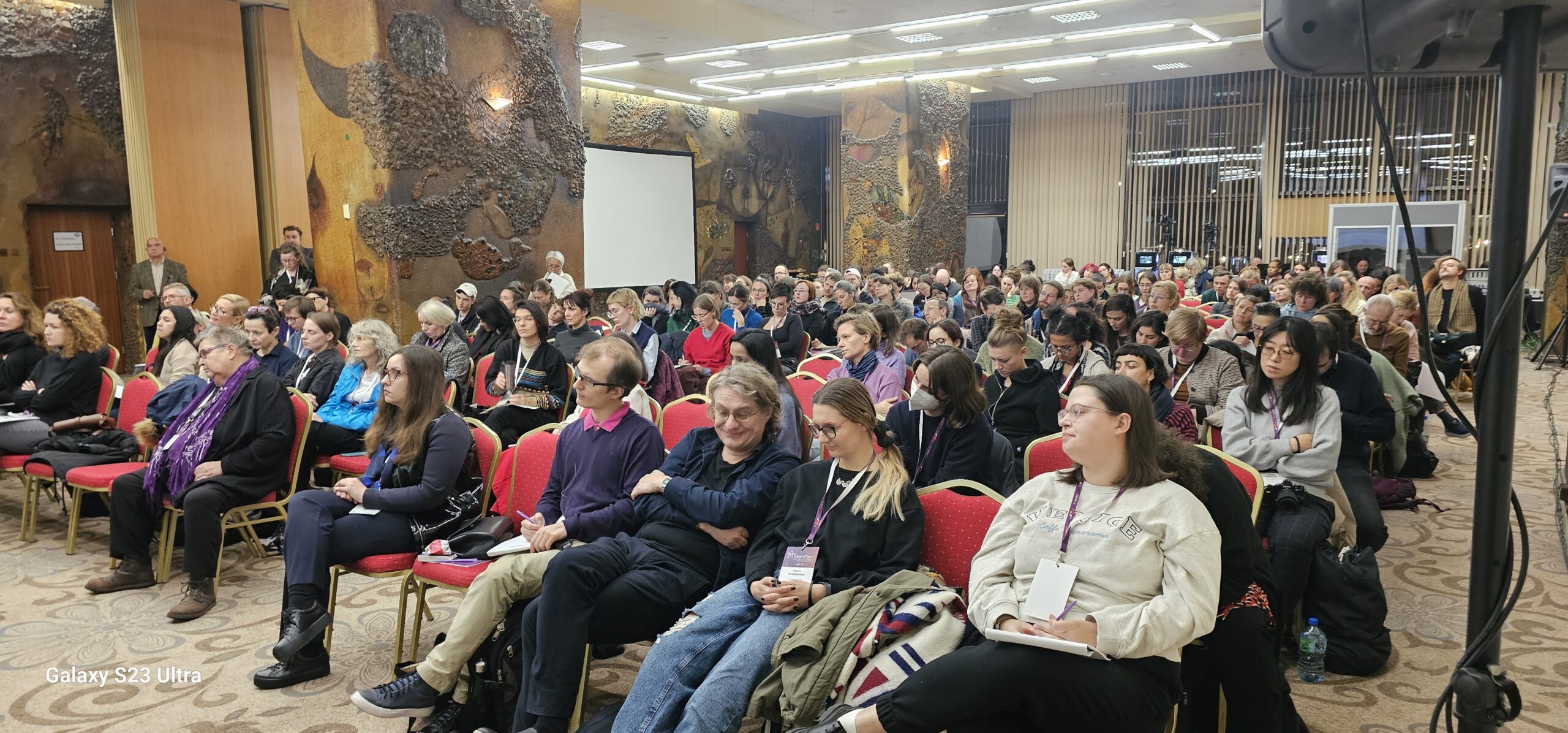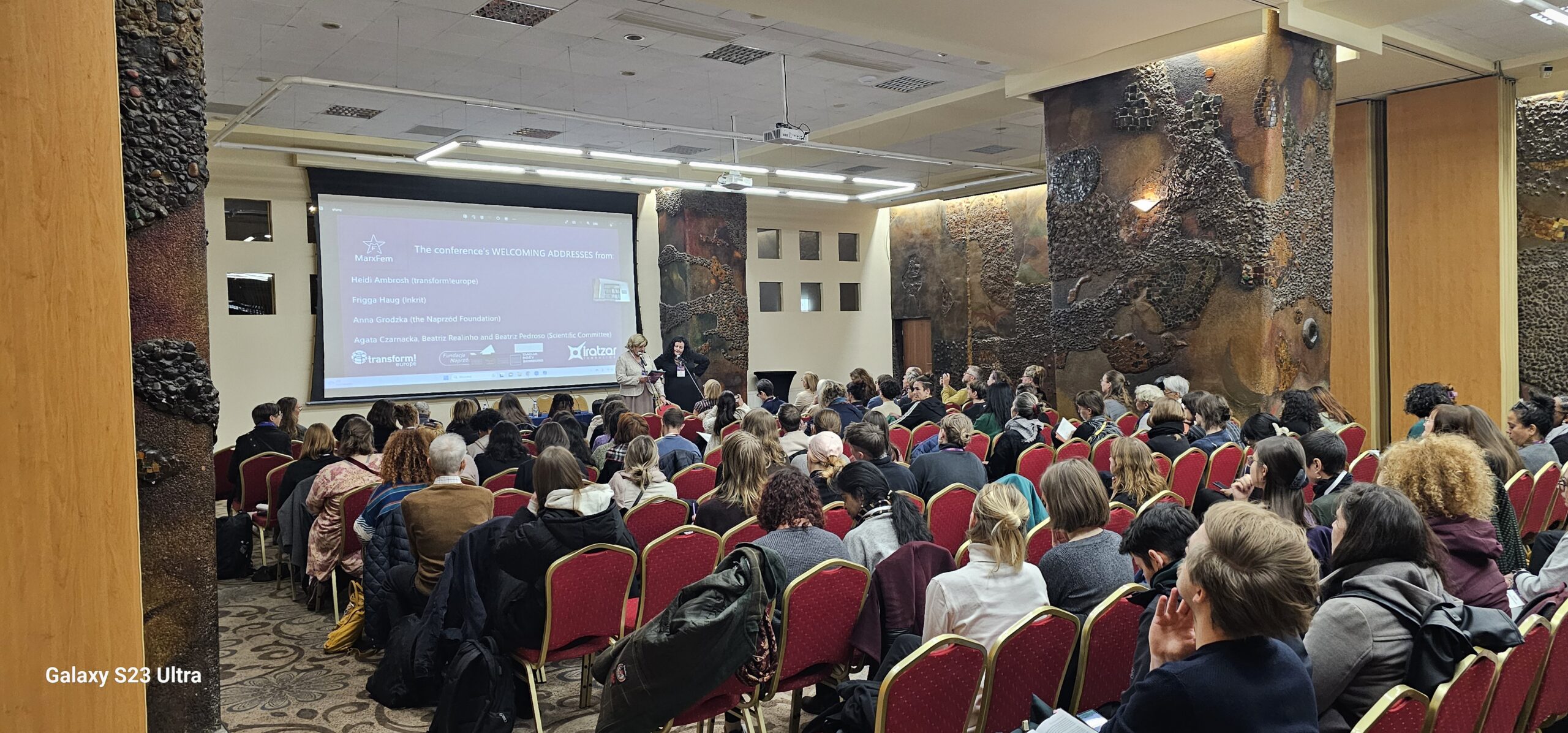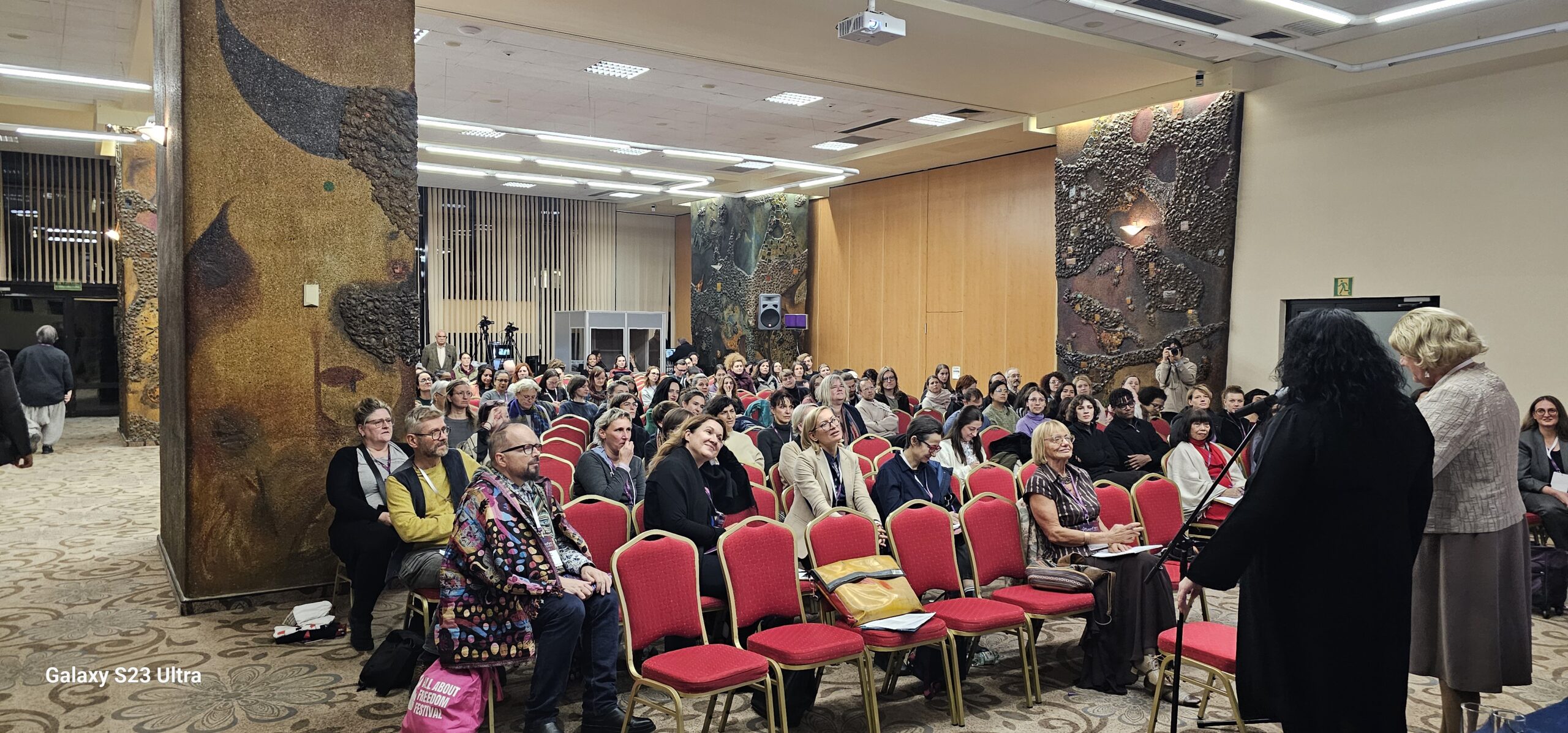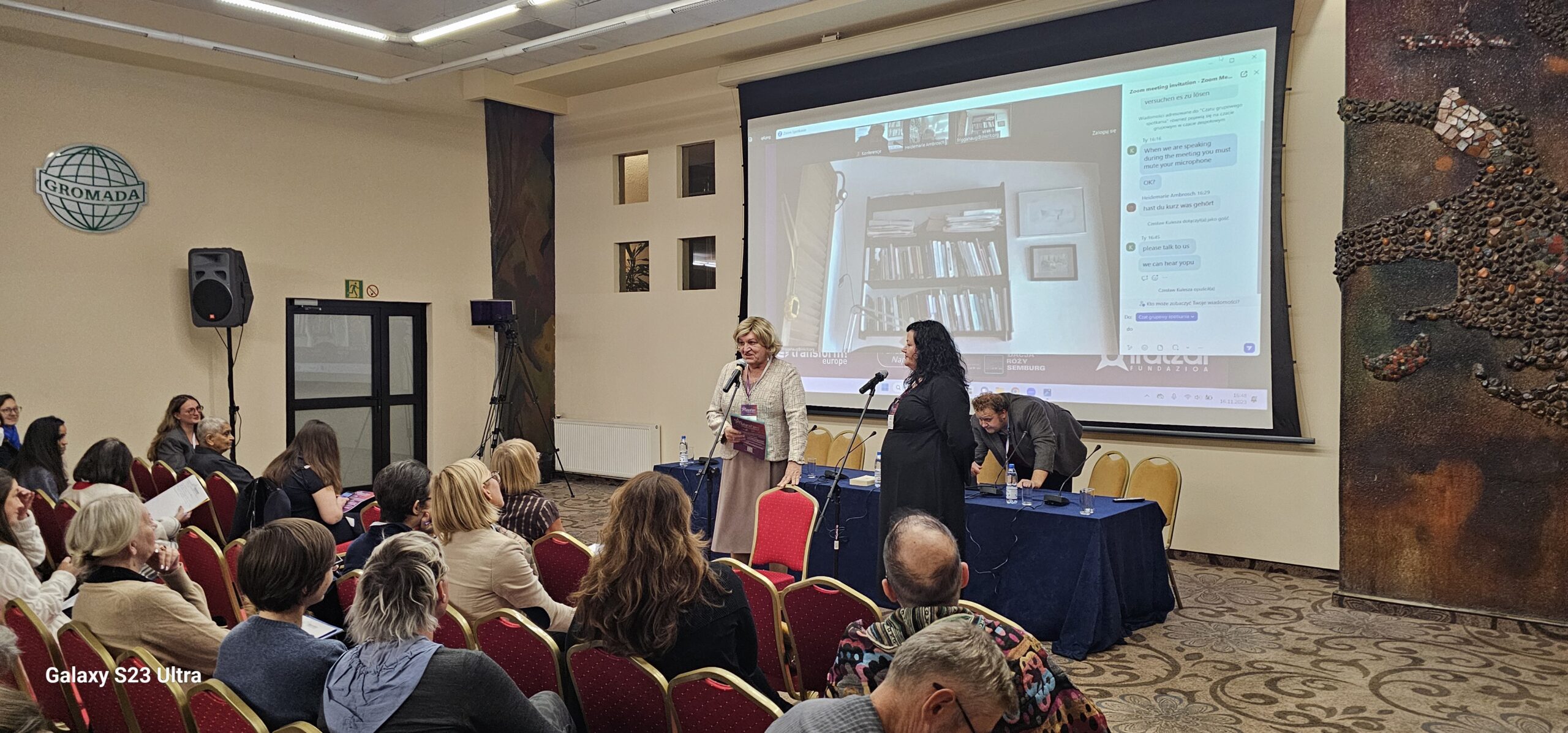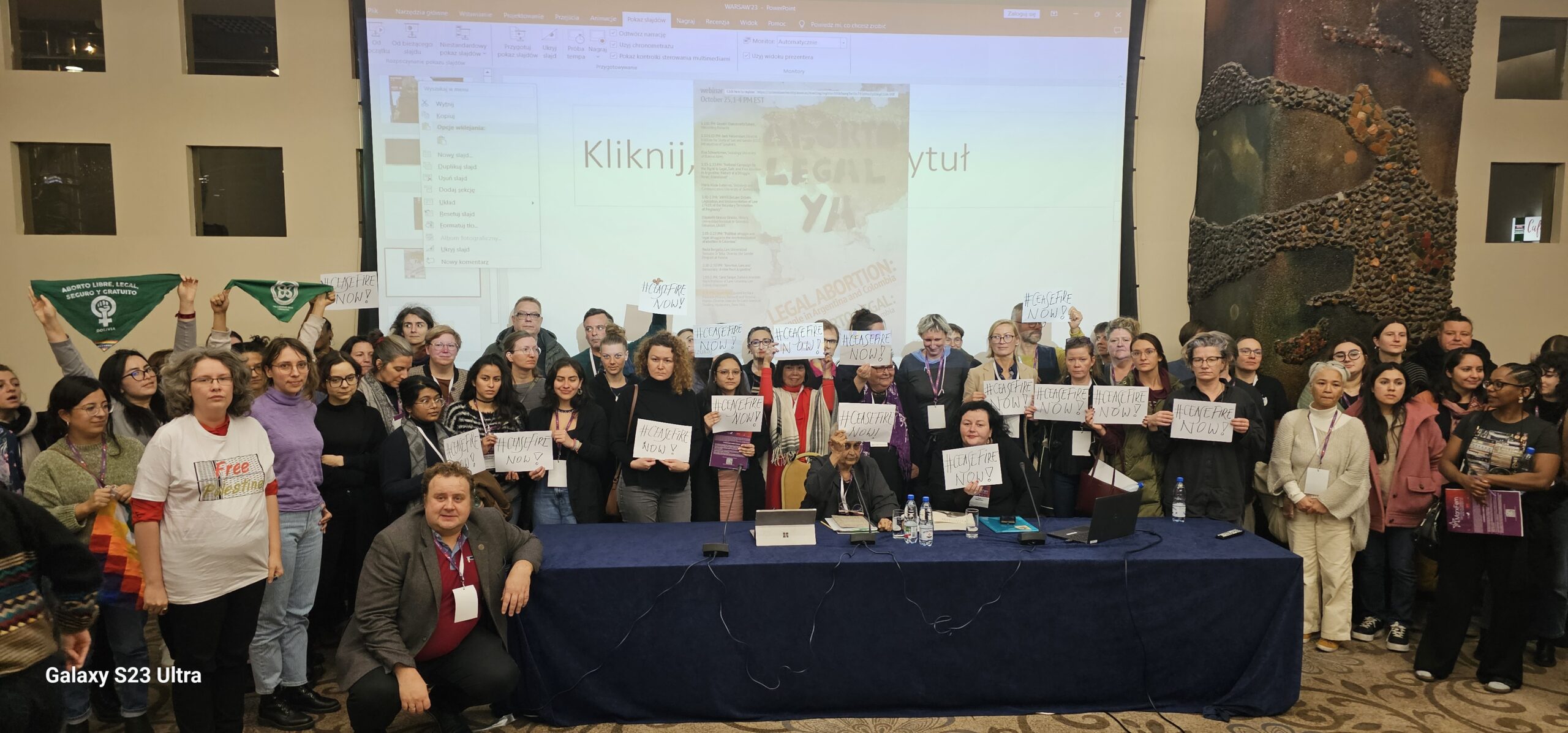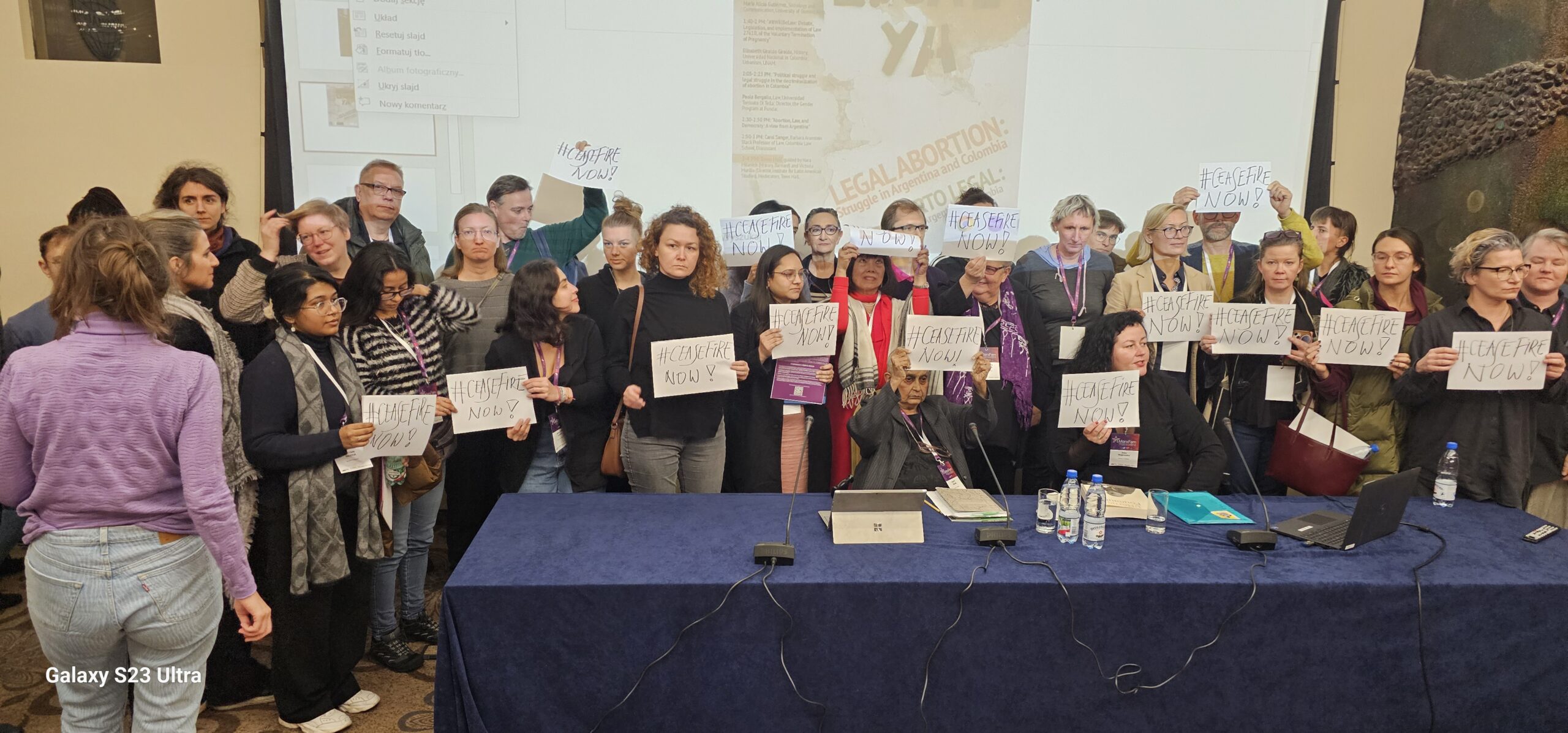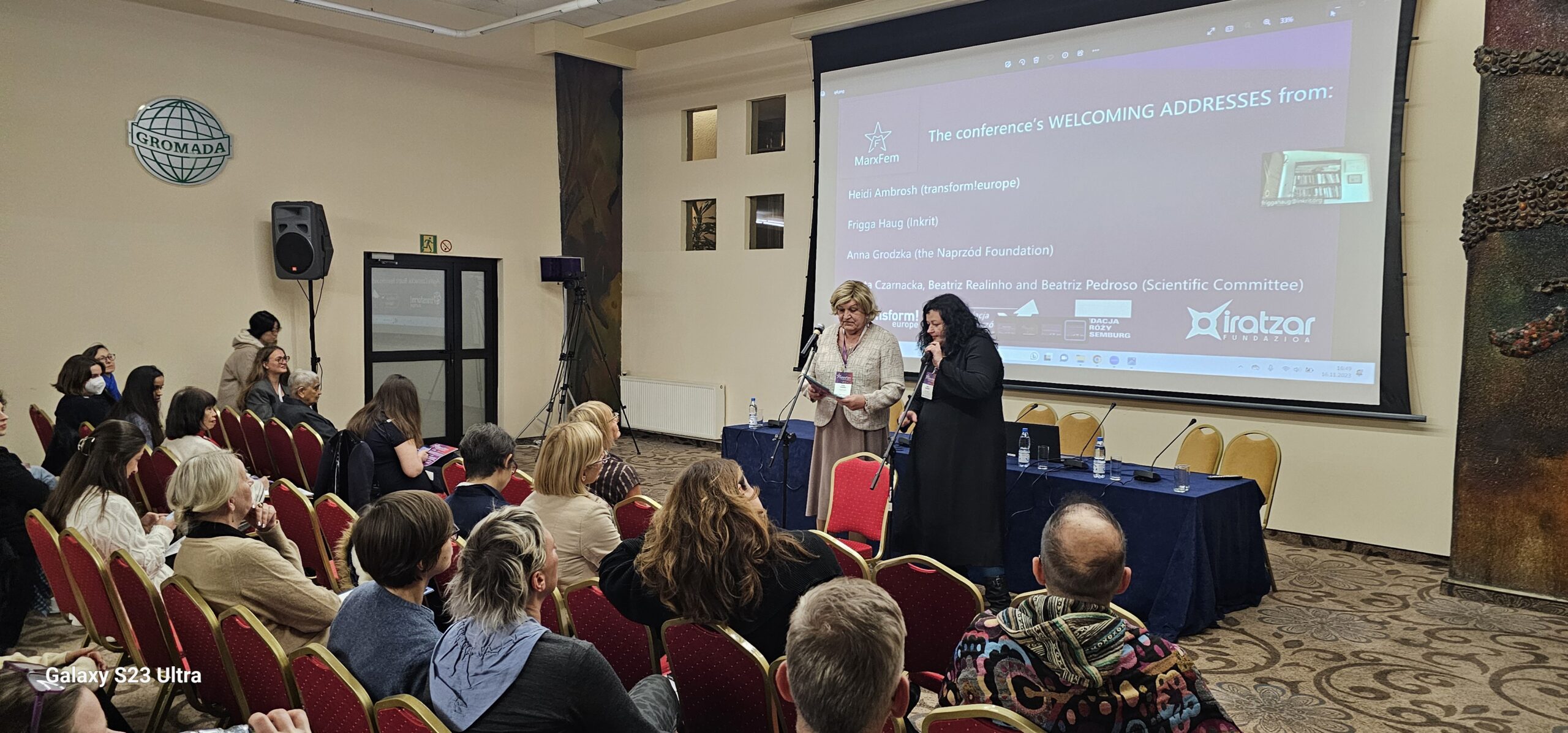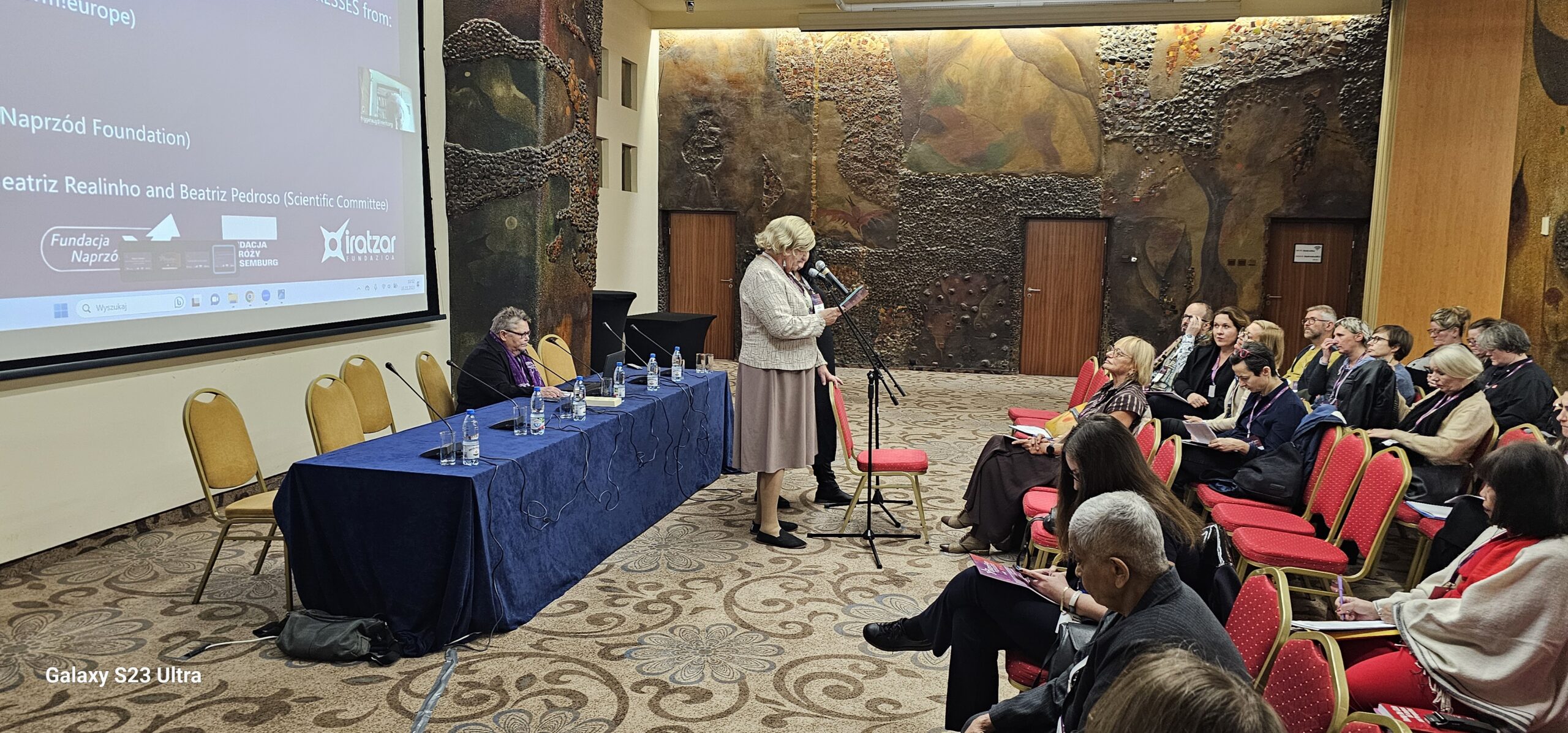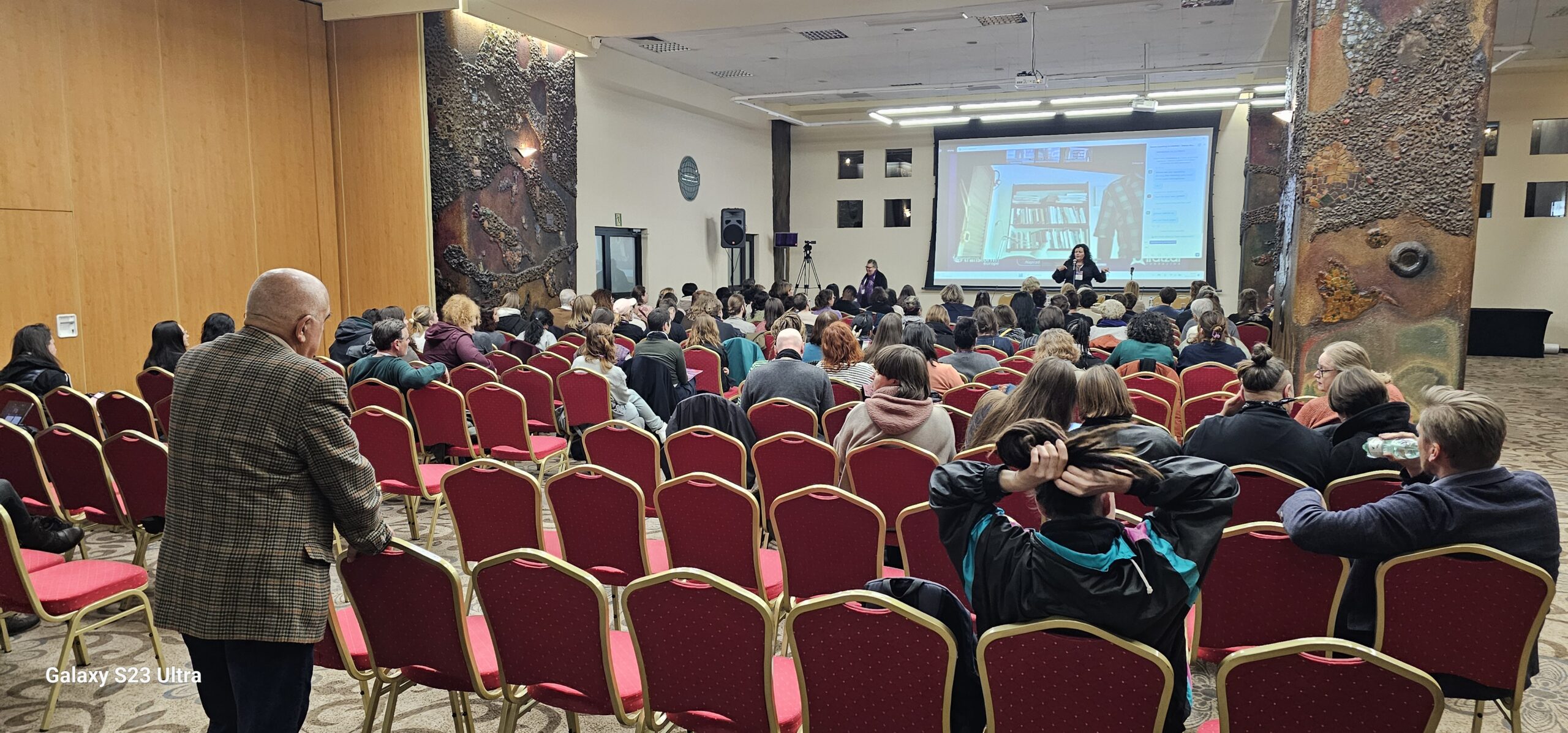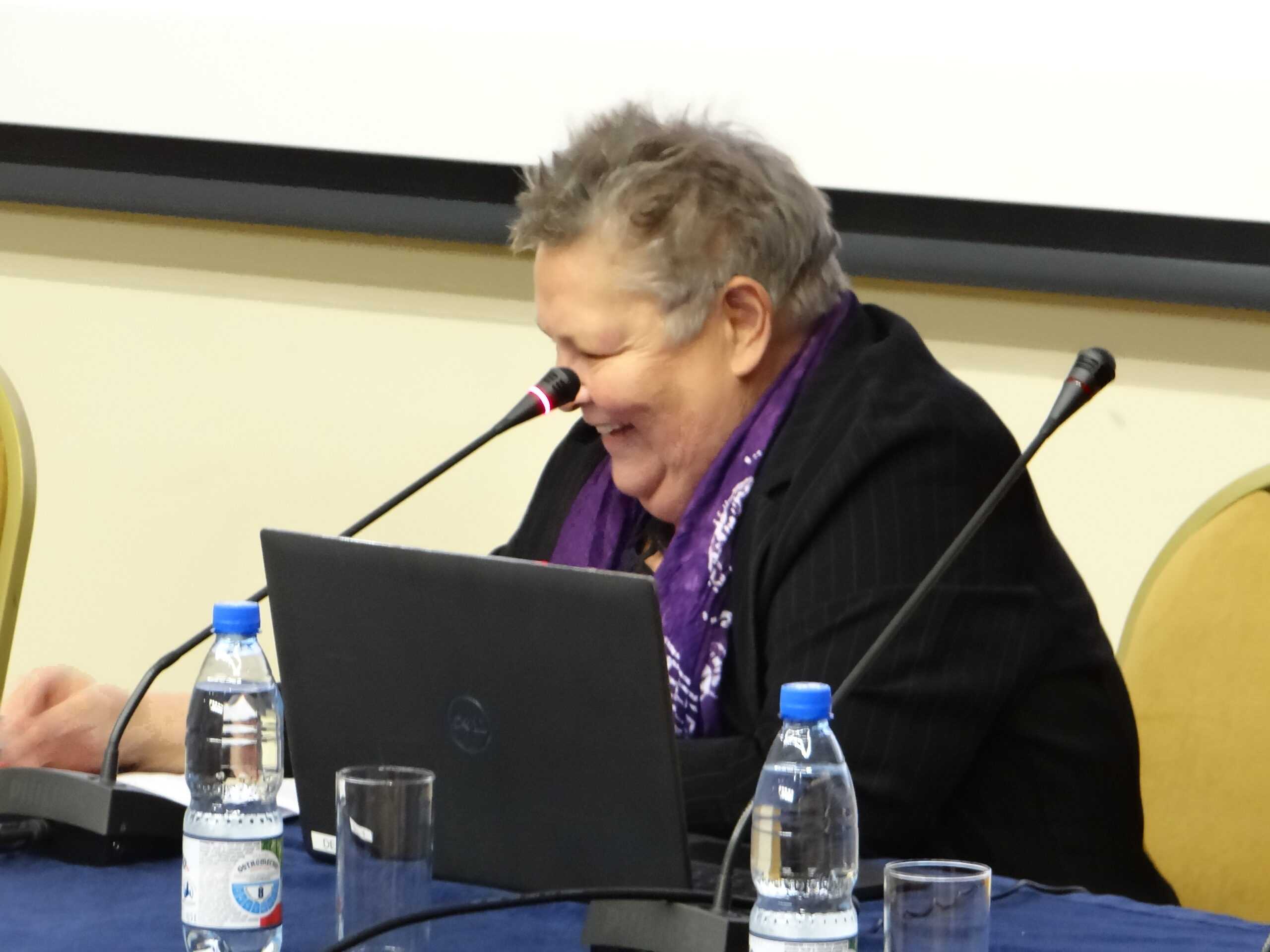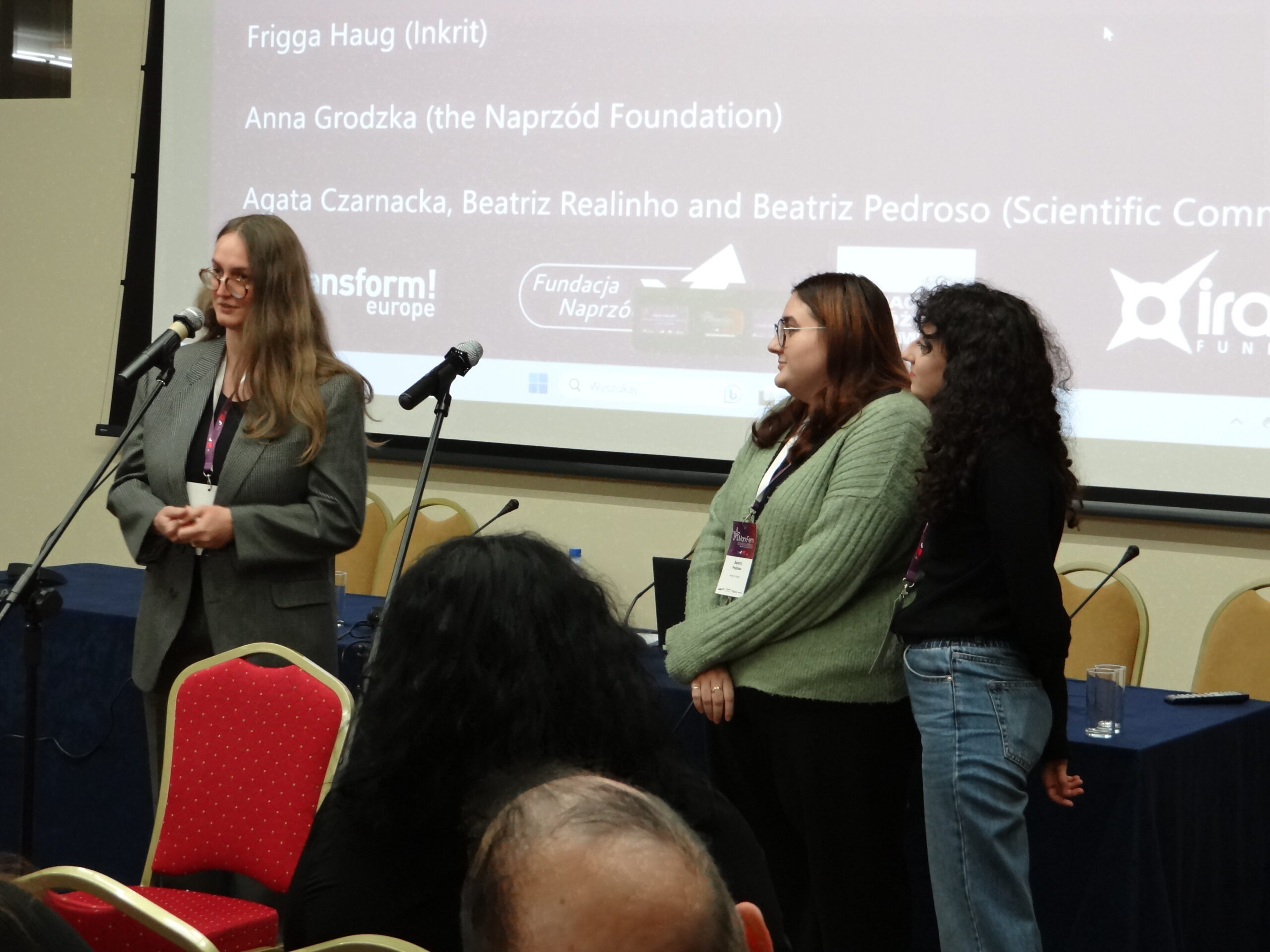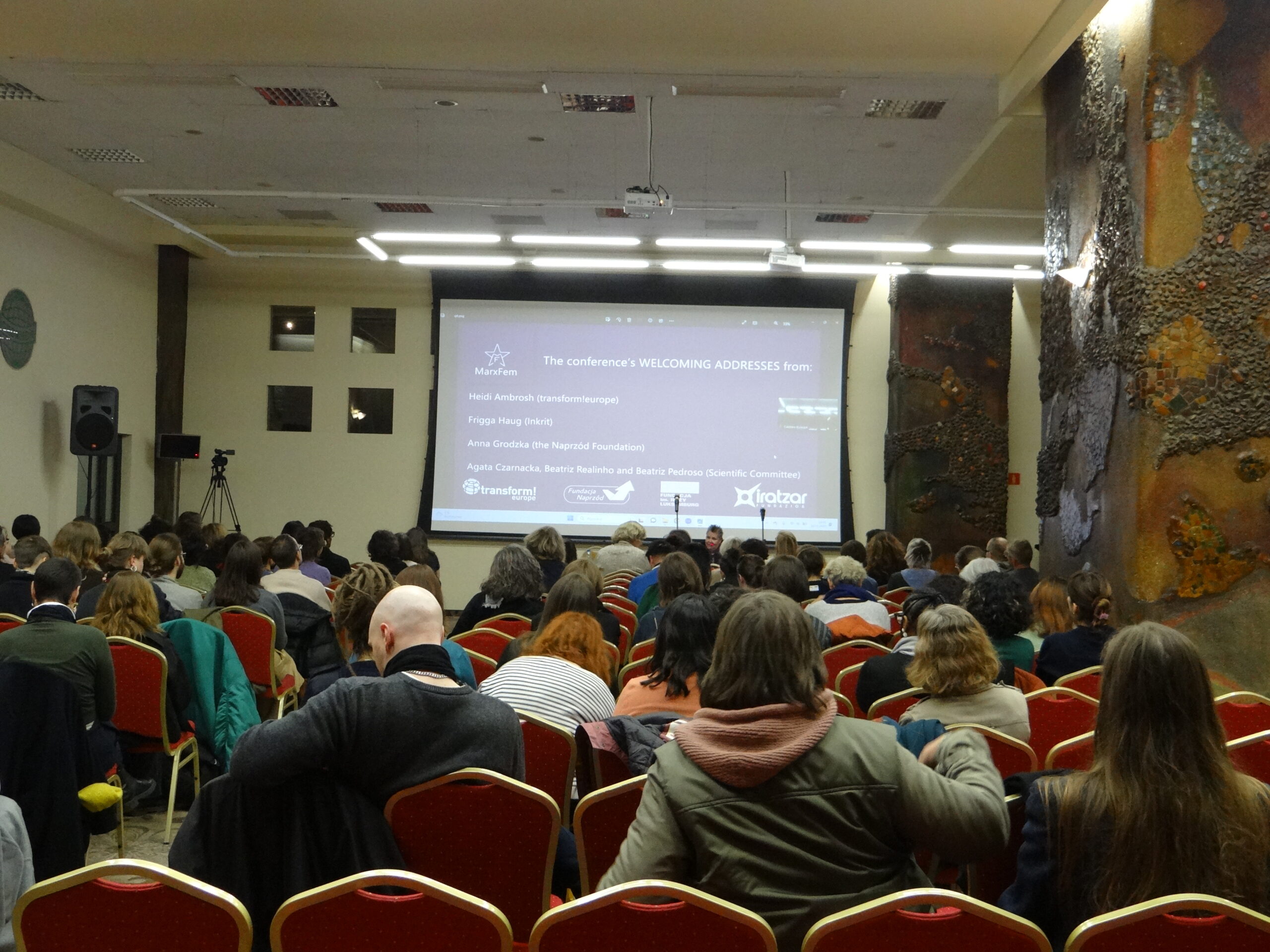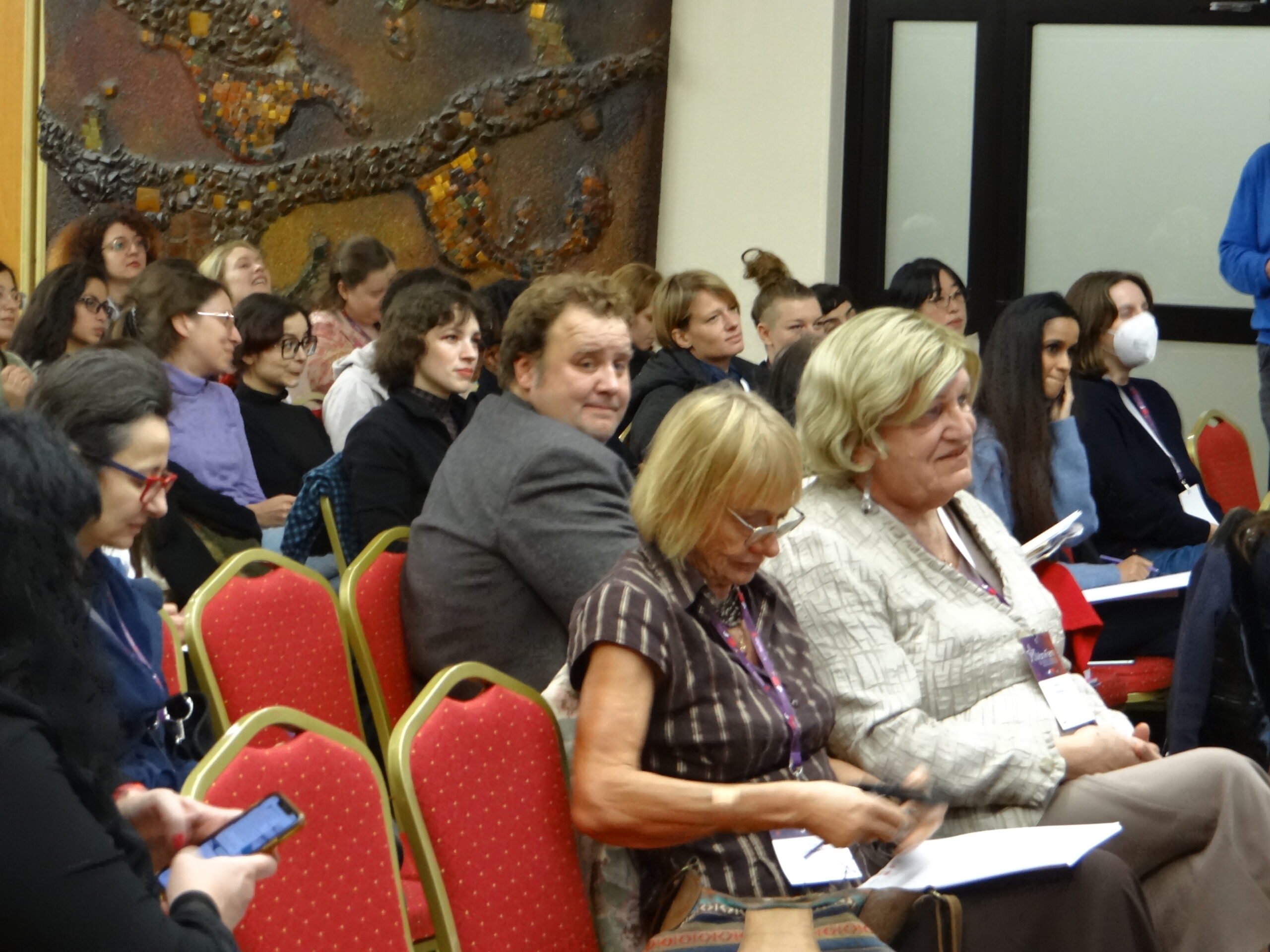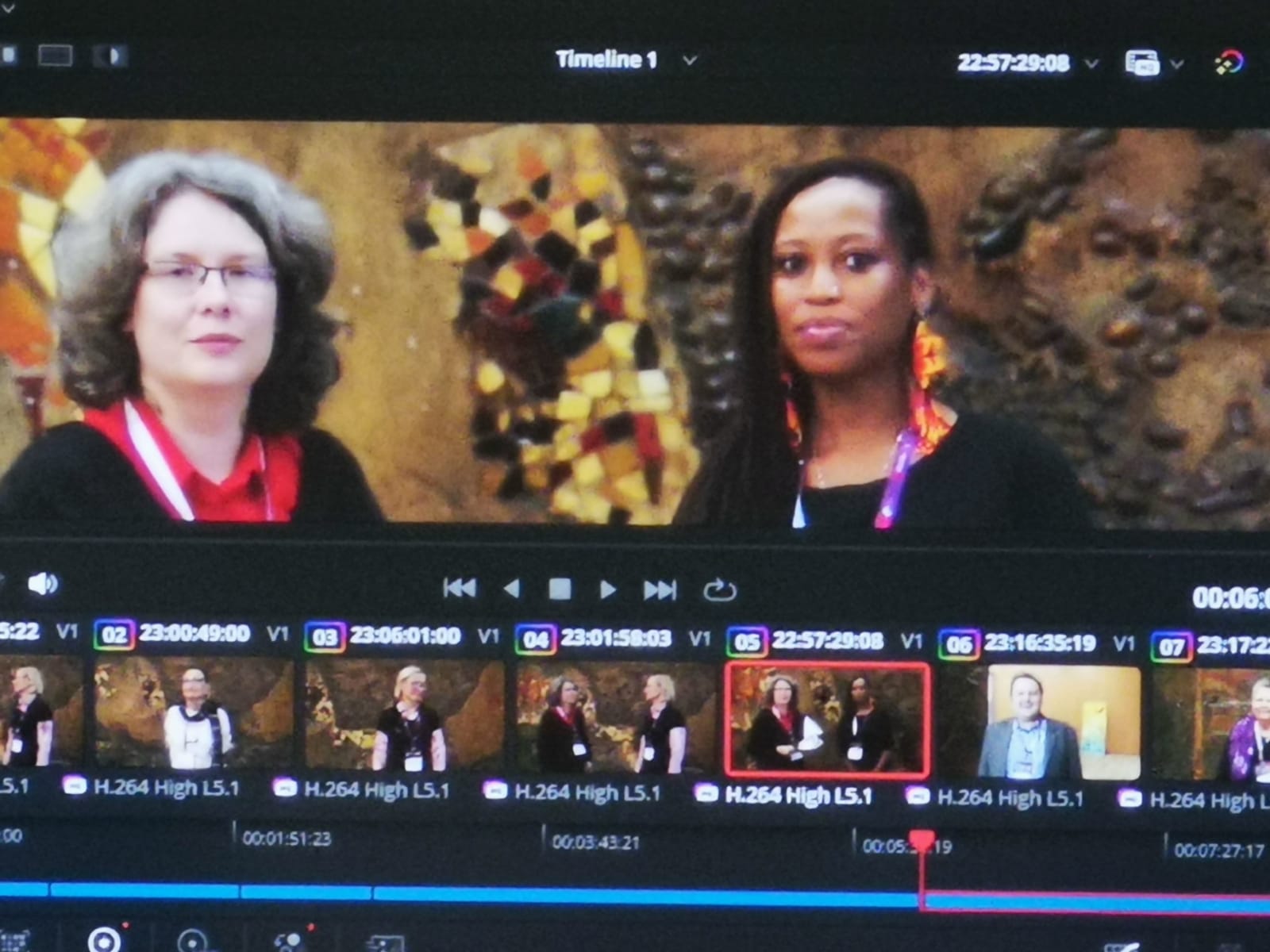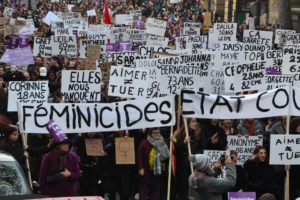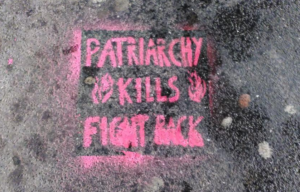From 16 to 18 November, Warsaw was the capital of world social and Marxist feminism: hundreds of women from all over the world gathered to discuss political theory and praxis, to exchange experiences, research results and free thoughts. Women of North and South, East and West, all committed to the common values of liberty, equality and human rights, looked for the most efficient strategies to claim equal rights in a more just world. The spirit of sisterhood was truly in the air.
Just three years earlier, hundreds of thousands of women and their supporters had marched in the streets of the same city to protest against a nearly total ban on abortion. It was the largest protest movement in Polish history since 1989 – and yet it did not end in victory. At the same time, around the world, the pandemic put additional pressure on women: statistics show that the extraordinary burden of emotional and care work was placed primarily on their shoulders. In addition, women were more likely to lose their jobs or have their salaries cut when the health emergency was followed by an economic crisis. And all this happened while old issues of equality and discrimination remained unresolved: gender gaps and glass ceilings have not disappeared, gender stereotypes are alive and well, and violence against women and girls continues to claim victims.
But those who came to the conference did not come to complain. Rather, they were an example of the willingness to resist and fight, even when the opponents are very powerful. It was enormously inspiring to hear San Francisco-based black abolitionist feminist Ndindi Kitonga speak about confronting the racism that is ever-present in the US prison and police complex. Ukrainian researcher and activist Oksana Dutchak spoke in powerful words about the need for solidarity with all the oppressed, all those under attack. Blanka Hasterok, a trade union activist in one of Amazon’s warehouses in Poland, shared insights into how women are building a labour organisation in a company known for union busting.
Low wages, excessive work burden and union busting – Blanka Hasterok of @pracownicza shared her firsthand experiences about realities of working for Amazon in #MarxFem2023 conference.
cc @transform_ntwrk @RosaluxEuropa @rosaluxstiftung pic.twitter.com/0gx3KaRIFb
— Cross-Border Talks (@border_talks) November 18, 2023
The suggestion to move away from a ‘culture of toughness’ (mentioned by the Austrian university researcher Gabriele Michalitsch in her presentation) in favour of a culture of mutual care was also echoed in a number of interventions. Sylwia Chutnik’s presentation, based on her experience of the pandemic and remote work, provided further evidence of how the patriarchy places more and more burdens on women. Other participants, such as Zofia Łapniewska, argued that feminism today must also include ecological awareness and a commitment to preserving the earth, which has been so badly damaged by the capitalist race for profit at all costs. As the conference was not just ‘feminist’ but Marxist-feminist, issues of working women and the labour market were raised several times. The results of Laura Bäumel’s study on women working in factories in the Austrian region of Styria showed how much still needs to be fought for: the women she interviewed did not even think about sharing the housework equally with their partners, and even if they were clearly representatives of the exploited class, their dissatisfaction often affected other unprivileged groups, such as migrants.
The conference was also an opportunity to learn from history. The opening keynote by Gayatri Spivak went back to the days of primitive accumulation, offering a new reading of that period in a feminist interpretation. Another speech mentioned one of the most famous Polish-born fighters. While Rosa Luxemburg is often misunderstood as an enemy of the Polish struggle for emancipation, one of the papers showed that she was neither indifferent to issues of national oppression nor a naïve pacifist when it came to violence against the weaker. Another historically-inspired presentation looked at the famous Icelandic women’s strike and discussed the question: should we, as social feminists, soften our discourse in order to seek (temporary) unity with liberal and middle-class feminists, or should we speak with our own voice and accept that this voice will not be followed by all women? Surely everyone in the auditorium had their own answer. And the discussion will continue at the next conference, which will most probably be hosted by Portugal.
Personal impressions and comments by Vladimir Mitev, Cross-Border Talk journalist:
I was one of the very few men present at the 5th International Marxist Feminist Conference in Warsaw in November 2023. Perhaps 90% of the speakers and audience were female. It was a feminine realm of knowledge and reflection, with women talking about women to an audience of women, articulating perspectives that could empower the politically unprivileged part of humanity.
In this context, I saw my main role as that of a supporter – of my colleague Malgorzata from Cross-Border Talks and of the Polish organising team from the Naprzód Foundation (the foundation that also publishes Cross-Border Talks). I also took the position of a learner – both in the official panels to which I listened, and in unofficial, private conversations with participants in the Forum.
In my view, the most powerful and encouraging panel was the one on war and feminism, chaired by Polish feminist and activist Ewa Majewska. An Iranian and a Ukrainian speaker demonstrated enormous resilience in speaking about the crimes and abuse committed against civilians, unarmed people, women and children. We felt the disruption and gravity of what war and strict security measures do to the feminist triad of women-life-freedom. For me, women are imbued with the power to make change, while the inability to meaningfully connect with evolutionary, caring change is most vividly seen in the conditions of war. What Oksana Dutchak and Sama Ooryad demonstrated during the conference was that the heart and mind can endure much pain, but remain intact, resilient and able to see hope even in the most tragic moments of a nation.
Originally published on the Cross-Border Talks website.
| This was MarxFem 2023, see you in Portugal in two years! |
| Stay tuned for the full report and recordings of the sessions to be updated in the coming days. |
Related articles:
4th International Marxist-Feminist Conference – Recordings
Thirteen Theses of Marxism-Feminism
